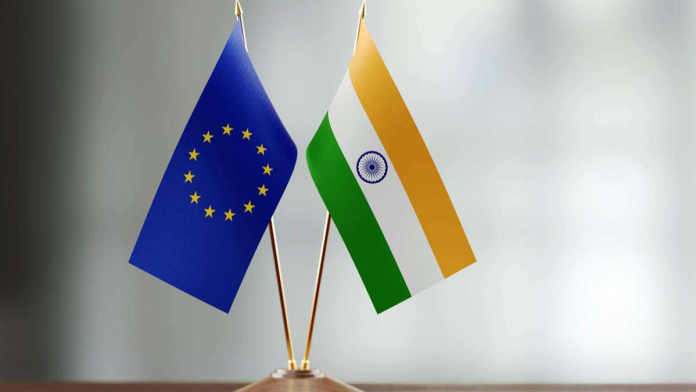A New Strategic Agenda Between Europe and India
The European Union has announced a wide-ranging plan with India, marking a major step in their partnership. The deal, called a “strategic agenda”, aims to deepen cooperation in security, defense, and technology. It also highlights the EU’s goal of finalizing a free-trade agreement with India before the year ends.
As part of the announcement, both sides confirmed that they are exploring the creation of a Security and Defence Partnership. This could lead to more joint work on global security challenges. The push for closer ties shows how the EU is looking beyond its traditional partners and building stronger global connections.
EU Trade Commissioner Maros Sefcovic admitted that he had expected more progress when he met with Indian counterparts in New Delhi last week. EU foreign policy chief Kaja Kallas also raised concerns about India’s ongoing purchases of Russian oil, saying the issue continues to weigh on talks. Both officials stressed that no part of the trade deal is agreed until every detail is settled. Any final agreement will also need approval from the European Parliament and Council.
Trump links new tariffs on India and China to joint EU action against Russia
Sanctions and Pressure on Russian Oil Trade
The timing of the EU-India announcement comes as discussions in Europe intensify over its next package of sanctions against Russia. The upcoming sanctions package, which will be the 19th since the war began, may include measures aimed at companies in India and China. These companies are accused of helping Russia keep its oil trade alive despite international pressure.
At the same time, the United States has urged Europe to take an even tougher stance. US President Donald Trump has been calling for tariffs on oil-related trade with countries like India and China. So far, European leaders have not taken that step, but the idea has added to the strain in transatlantic talks.
European Commission chief Ursula von der Leyen recently spoke with Trump and pledged that the EU would accelerate its efforts to cut Russian fossil fuels out of its energy supply. However, the issue remains sensitive in several EU member states. Countries such as Hungary and Slovakia still rely heavily on Russian oil and gas. Slovakia’s economy minister has already signaled that his country will resist pressure to cut imports until sufficient alternatives are in place.
EU officials plan coordinated sanctions with US to increase pressure on Russia’s economy
Global Markets Shift and Unrest in Serbia
The growing tension over energy and trade is also reshaping global financial markets. Europe’s stock exchanges are attracting more attention from international companies and investors. Analysts point to new trade policies and US tariffs as reasons why many businesses now see Europe as a safer place to raise money and go public.
This shift comes at a time when the EU is presenting itself as a more stable and attractive hub for global investment. With political uncertainty in other regions, more assets are being moved to European markets. This is seen as a sign that companies worldwide are adjusting their long-term strategies.
Meanwhile, Europe continues to face challenges on other fronts. A recent study revealed that extreme summer heat caused more than 16,000 deaths across European cities this year. Temperatures reached record highs, with some regions seeing as much as 46 degrees Celsius. The figures underline how climate change is already hitting the continent hard.
In another part of Europe, political protests are shaking Serbia. Demonstrations have continued in response to a deadly accident last year at a railway station. Protesters accuse President Aleksandar Vucic of corruption and cronyism, demanding early elections. Serbia has long been courted by the EU with financial support, but public opinion remains divided. Surveys show that only about a third of the population currently supports joining the EU.


